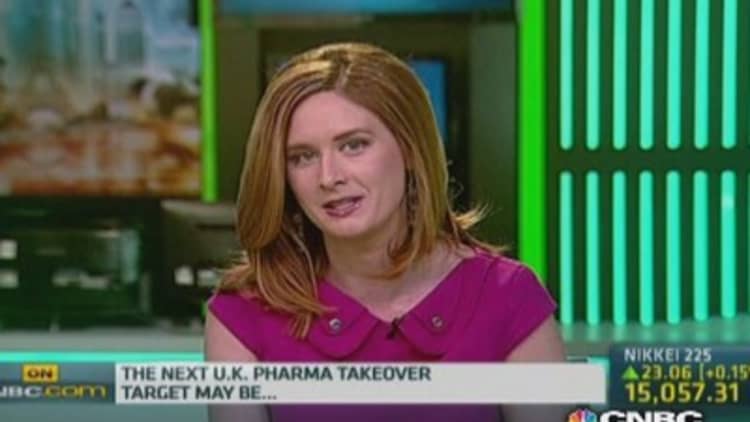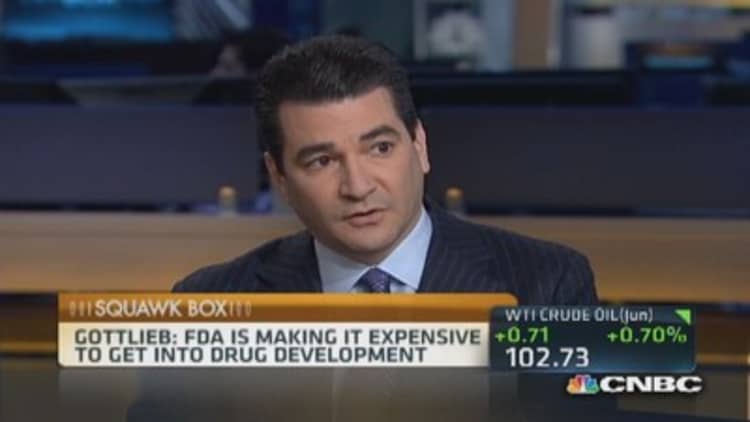
Market rumor and speculation that Dublin-based, U.K.-listed pharma company Shire is a takeover target come around with slightly more regularity than Christmas.
With increased focus on the tax advantages for U.S. pharmaceutical companies on moving to the U.K. in the light of Pfizer's attempted $106 billion takeout of AstraZeneca, it's unsurprising Shire is back in the spotlight. Its share price has risen by 22 percent since news that Pfizer was examining a bid for its larger U.K. counterpart emerged – without any evidence of a firm offer (although it may also have been boosted by the early release for a new eye treatment.
Among the potential acquirers are: Allergan, under pressure from a possible hostile bid by Valeant backed by activist investor Bill Ackman, and AstraZeneca itself -- although neither has made an approach which has required a public statement.
So, why Shire? There is plenty of confidence in its pipeline of drugs under development, which has diversified away from the ADHD drugs with which it first made its name into rare diseases, gastro-intestinal treatments and ophthalmology. It has followed what Credit Suisse analysts call a "search-and-develop not R&D strategy," in which it seemed to be ahead of some of its larger rivals.
Read MoreAllergan's Valeant defense:Buy Shire?
Like many of its bigger peers, this diversification has come through acquisitions, including the $4.2 billion takeover of antiviral specialist ViroPharma and $260 million deal for liver disease company Lumena, just in the last six months. The company is also understood to be eying U.S. based NPS, which has a new medicine for short bowel syndrome, and has a $5 billion credit facility in place.
Not all of these acquisitions have been successful. Shire recently sold skin treatment Dermagraft at a loss, for example.

Still, there seems to be enough to keep investors and analysts happy. Peter Verdult, analyst at Citi, recently hiked his share price target for the company to £40, based on the line-up of medicines in development.
Its size, with a £20 billion ($33 billion) market value as of Tuesday afternoon, makes it more digestible than a company of AstraZeneca's magnitude.
And the company has recently taken on a new chairman, former investment banker Susan Kilsby, who used to be co-head of Credit Suisse's mergers and acquisition business in Europe, a background which has piqued investors' interest.
Read MorePlanning a UK takeover? There are some pitfalls
However, U.S. buyers will be aware that the company needs to constitute around 20 percent of a merged company to make it able to use the "tax inversion" strategy. This might make it difficult for a company of Pfizer's size, for example, to gain the full tax benefits from buying a U.K.-listed company.
The "inevitable slowdown" in ADHD prescription growth in the U.S. -- according to Credit Suisse -- is also something which might concern a potential buyer.
Shire declined to comment for this article. The company is believed to be keen to continue as an independent entity.



